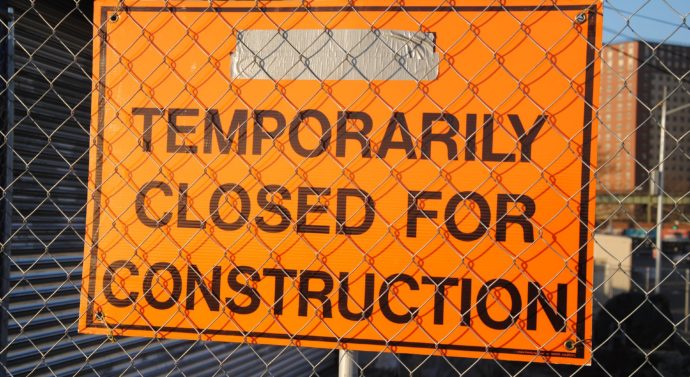
Government shutdown affects students and community
Front Page, News January 25, 2019, Comments Off 80The current shutdown is the longest in American history at 33 days and counting as of the date this article was written. The previous record was held by the Clinton administration for a government shutdown lasting 21 days in 1995-1996.
The reason for the government’s current shutdown is clear. A disagreement in funding for the border wall proposed by President Trump led to a veto of a government spending bill and has since led to little headway from either side.
The wall proposed by Trump since the beginning of his presidency required more than 5 billion dollars in funding. Because House Democrats have refused to pass a spending bill, the government has gone into a lockdown and employees are furloughed until further notice.
Across the United States more than 800,000 federal employees have gone without paychecks since December 2018. Absences at airports are noticeable, as Transportation Security Administration (TSA) employees are calling in sick and leaving some locations understaffed. Along with this, millions more work as contractors to the government for privately-owned companies like Boeing. Many will not get back pay from the federal government because they are not federal workers.
Deal or No Deal
Saturday afternoon President Trump proposed a deal that could end the shutdown. At the press conference, the president stated that he would be willing to give a three-year extension to DACA (Deferred Actions for Childhood Arrivals). The program serves to protect illegal immigrants who arrived in the U.S. as children. In exchange for this extension, President Trump stated that he would require a budget of 5.7 billion dollars to build the wall along the southern border.
Democratic lawmakers and leaders such as Nancy Pelosi, the Speaker of the House, immediately stated that the deal was a “non-starter,” and that the issue of border funding and immigrant protection could be approached after the government had been re-opened.
“I am ready to sit down at any time after the government is opened and work to resolve all outstanding issues,” said Senator Dick Durbin in a written press release on Saturday.
Durbin, along with Republican Senator Lindsey Graham, unveiled a bipartisan bill in December of 2016 called the Development, Relief, and Education for Alien Minors (DREAM) Act that would offer protections to illegal immigrants. The program was rescinded by the Trump administration in September of 2017.
Student Opinions on the Shutdown
The Mirror spoke with students on campus and members of Drury’s political organizations, as well as other community members, to get a gauge for just how students feel about the ongoing shutdown.
“I am completely sympathetic for those adversely affected by the shutdown; however, I believe that it is a necessary action to properly address the issue of immigration in our country,” said Dayton Doudican, a political science major.
“I believe that it is a necessary action to properly address the issue of immigration in our country. President Trump’s proposed offer of temporary protection for ‘dreamers’ in exchange for a border wall is a step in the right direction. Ultimately, reasonable compromise would be the most desirable outcome,” continued Doudican.
Other students at Drury are not so sure. Lindsay Duede, President of Young Democrats, acknowledged the divide between members of our government regarding immigration policies, but she does not believe that the shutdown is a necessary measure.
“This is just not the right forum to fight over a border wall,” said Duede. “It isn’t a partisan issue to want workers to be paid. It isn’t a partisan issue to want our government [to be] working.”
Duede focused less on the political issues surrounding the shutdown and more on the impacts to the individuals struggling with financial uncertainty.
According to Duede, “The American people deserve a government that will work.”
The shutdown has already affected a large number of people within the community of Springfield. Grace Lopez, a student at Missouri State University, has a different perspective about the shutdown. She does not believe that the wall will serve an important purpose in deterring illegal immigration, but the shutdown affects her on a more personal level.
“My food stamps got cut off, and I have to combine $150 between January and February. That isn’t enough for one person by any stretch,” Lopez stated.
She is one of many people in Springfield that will see these Congressional disagreements impact this essential resource for food. The current climate regarding food stamps in Springfield is one of uncertainty. Recipients like Lopez received their February benefits early, and are unsure if they will receive benefits for the month of March.
When the government resumes functioning, many wonder how we will proceed as a country regarding policies on immigration and the future of our borders. However, there is a greater uncertainty around whether this kind of stalemate, in which so many Americans find their essential sources of income and government benefits held hostage by warring political parties, is the new normal for our country.
Article written by Lauren Barclay and Ryan Smith.